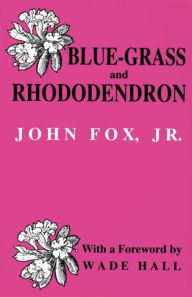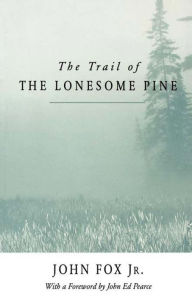John Fox Jr.
Born in Stony Point, Kentucky, The United States December 16, 1862
Died: July 08, 1919
Genre: Literature & Fiction, Short Stories
John William Fox was born in the heart of Bluegrass country in Bourbon County, Kentucky. His father, John W. Fox
... Read more
Born in Stony Point, Kentucky, The United States December 16, 1862
Died: July 08, 1919
Genre: Literature & Fiction, Short Stories
John William Fox was born in the heart of Bluegrass country in Bourbon County, Kentucky. His father, John W. Fox was headmaster of the Stony Point Academy, which John Jr. attended from 1867 to 1875. After attending the Transylvania University for two years, he entered Massachusetts' Harvard university to study English in 1880, graduating cum laude in 1883.
Fox moved to New York City where he worked for a time as a journalist with the New York Sun and then the New York Times. He then moved to Virginia where he joined his half-brother James in the real estate business, and the rest of the Fox family soon settled there too at Big Stone Gap, now an historic National Monument in memory of the Fox family. The new homestead saw a number of illustrious visitors, including future President Theodore Roosevelt, who became a life-long friend of Fox's. It was in Century magazine that his first story "A Mountain Europa" (1892) was published serially, followed by "A Cumberland Vendetta" a year later. The mountaineer-theme would be repeated in future works. Due to his popularity, he launched into the lecture circuit, travelling around Europe and America, including visits to President Roosevelt's White House, singing accompanying mountaineering songs and reading from his own works and others.
A Cumberland Vendetta and Other Stories (1895) was his first published collection of short stories. It was followed by Hell-Fer-Sartain and Other Stories (1897). The Kentuckians (1897) was followed by the novella A Mountain Europa (1899). Harper's Weekly sent Fox to Cuba in 1898 to report on the Spanish-American War. Crittenden (1900), Blue-Grass and Rhododendron (1901), and Christmas Eve on Lonesome and Other Stories (1904) followed, before he was off to Japan and Manchuria to cover the Russo-Japanese War in 1904. Following the Sun Flag: A Vain Pursuit Through Manchuria (1905) was a result. A Knight of the Cumberland (1906) was followed by his popular romance/coming-of-age story The Trail of the Lonesome Pine (1908). This and Little Shepherd were adapted for the big screen in several different versions in 1912, 1916, and 1936.
Fox counted among his friends other popular writers such as Richard Harding Davis, Jack London, and Booth Tarkington. He was awarded many honours in his lifetime including election to membership in the National Institute of Arts and Letters in 1899, a medal for his literary contributions from the Emperor of Japan, and his dedication and lobbying led to the passing of the Federal Copyright Act. John William Fox Jr. died of pneumonia at Big Stone Gap in Virginia and is buried in the Paris Cemetery, Paris, Bourbon County, Kentucky.
Less














